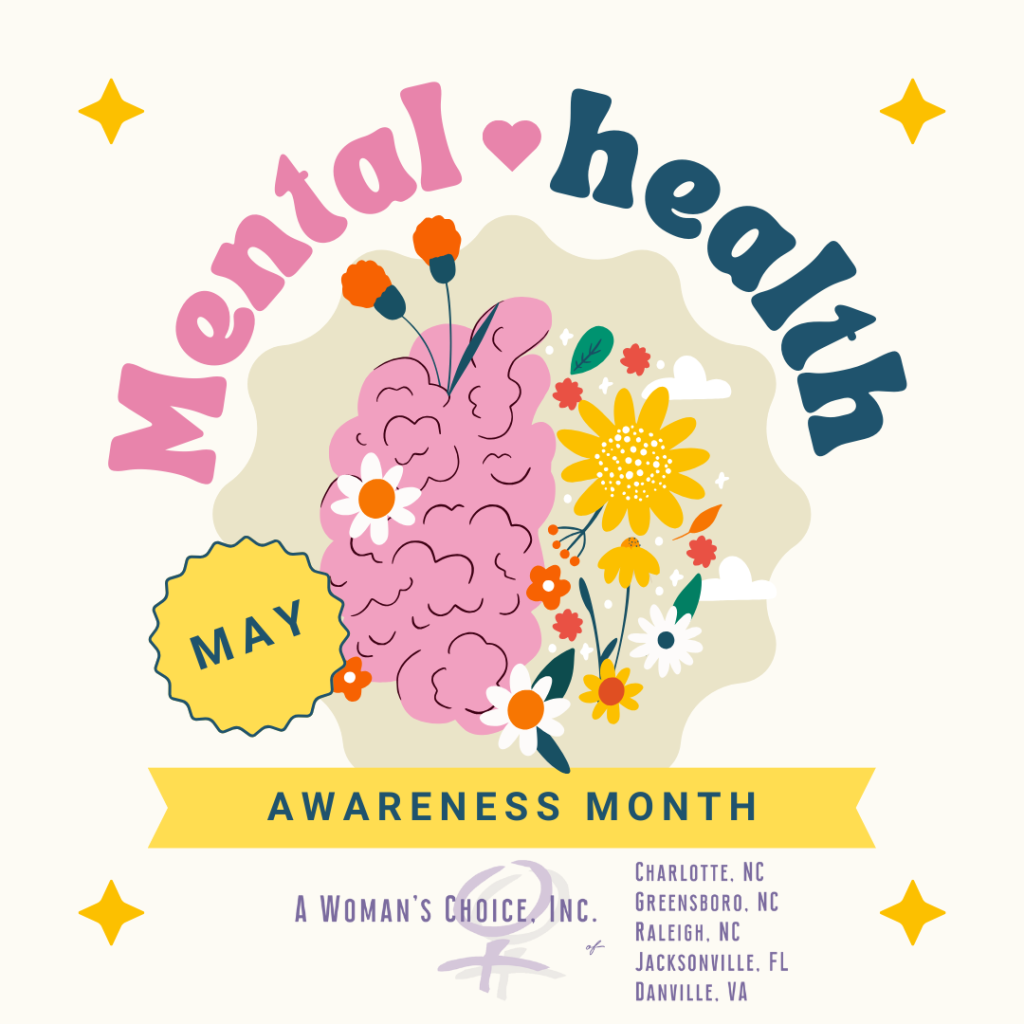By Gabby Long
When we talk about abortion bans, we often focus on politics, laws, and headlines. But behind every restriction are real people — people who are scared, grieving, angry, and traumatized. The mental health consequences of abortion bans are real, long-lasting, and deeply harmful, especially for those already living at the intersection of multiple oppressions.
Abortion bans don’t just block access to healthcare—they strip people of autonomy, isolate them from support, and deepen trauma. This isn’t just a reproductive issue. This is a mental health crisis.
✊ Losing Autonomy Hurts — And That Pain Is Deep
Being forced to carry a pregnancy you didn’t choose, can’t afford, or aren’t emotionally ready for is a form of psychological violence. It removes your right to control your body and your future — and that loss has real consequences.
The landmark Turnaway Study, which followed nearly 1,000 people over five years, found that people denied abortions were:
- More likely to experience anxiety and lower self-esteem shortly after being denied.
- Four times more likely to live below the federal poverty level years later.
- More likely to stay in abusive relationships, increasing the risk of PTSD and depression.
- Less likely to achieve long-term goals like finishing school or gaining stable employment.
Being denied an abortion doesn’t just affect one moment in time—it reshapes someone’s entire life trajectory. And the emotional toll of that forced shift is immeasurable.
For people who become pregnant from rape or sexual abuse, abortion bans are retraumatizing. Imagine surviving the worst moment of your life, then being legally required to relive it every single day through a pregnancy you didn’t ask for.
In the U.S., nearly 1 in 3 women and 1 in 4 men have experienced sexual violence. Almost half of transgender people report being sexually assaulted. When survivors are denied abortion care, it sends a clear message: your healing, safety, and mental well-being don’t matter.
And it doesn’t stop there. People carrying nonviable pregnancies or facing miscarriage complications are also being denied care. A study in Obstetrics & Gynecology documented how, after Texas’s S.B. 8 law took effect, physicians delayed life-saving miscarriage care until patients became gravely ill, not because they wanted to, but because the law forced them to.
That delay isn’t just dangerous, it’s traumatizing. Being told that your life is expendable under the law chips away at your mental health and sense of worth.
Abortion bans hit hardest in communities that already face structural barriers. Black and brown people, LGBTQ+ folks, people in poverty, disabled individuals, and rural residents are disproportionately impacted. The same systems that have denied our communities access to quality mental healthcare are now denying us reproductive healthcare, too.
Let’s be clear:
- Black women are 3x more likely to die from pregnancy-related causes than white women in the U.S.
- Over 40% of people in states with abortion bans say the bans have negatively affected their mental health or that of someone close to them, according to a 2022 KFF poll.
- LGBTQ+ youth in hostile states are already more likely to experience anxiety, depression, and suicidality, and now many of them face additional fear and uncertainty around their reproductive futures.
Abortion bans are not isolated policies—they are part of a larger system of control, punishment, and neglect. They don’t protect life. They endanger lives.
Supporting people through pregnancy, abortion, miscarriage, and parenting requires more than medical access. It demands trauma-informed, nonjudgmental mental health care that recognizes the full humanity of each person.
But even the best therapist can’t fix what systemic injustice creates. People don’t need to be pathologized for having panic attacks when they’re denied care. They need access. They need respect. They need freedom.
We must continue fighting for policies that uphold bodily autonomy, fund community mental health services, and protect everyone’s right to make decisions about their own lives. Because every delay, every denial, every unnecessary death or forced birth is a collective wound, and we all deserve to heal.
Here are some things A Woman’s Choice Clinics ask you to consider:
- Listen to and uplift the voices of those impacted by abortion denial and reproductive trauma.
- Fight stigma by speaking openly about the mental health effects of abortion bans — in your community, your workplace, and your organizing spaces.
- Support abortion funds and practical support networks, which are doing the on-the-ground work to help people access care.
- Push for comprehensive, trauma-informed care that centers reproductive justice and recognizes abortion as a valid and often life-affirming choice.
- Go local (when you can). Get care at independent abortion clinics, like A Woman’s Choice, that are in your communities.
You Are Not Alone
If you are struggling, know you are not broken. You are reacting to an unjust system, and your feelings are valid.
📱 Here are a few mental health and support resources you can turn to:
- All-Options Talkline: 1-888-493-0092 – For support with abortion, parenting, miscarriage, or adoption.
- Exhale Pro-Voice: www.exhaleprovoice.org – Nonjudgmental text-based support after abortion.
- Just Choice: https://justchoice.org – Offers all-options counseling support to all people we serve. They can help create plans that center you when adoption or parenting is chosen.
- Reprocare Healthline: 1-833-226-7821 – Peer-based support for self-managed abortion or miscarriage.
- 988 Suicide & Crisis Lifeline – 24/7 free and confidential support for anyone in distress.
Mental health is reproductive justice. Abortion access is healthcare. Autonomy is survival. We’re here for you.

